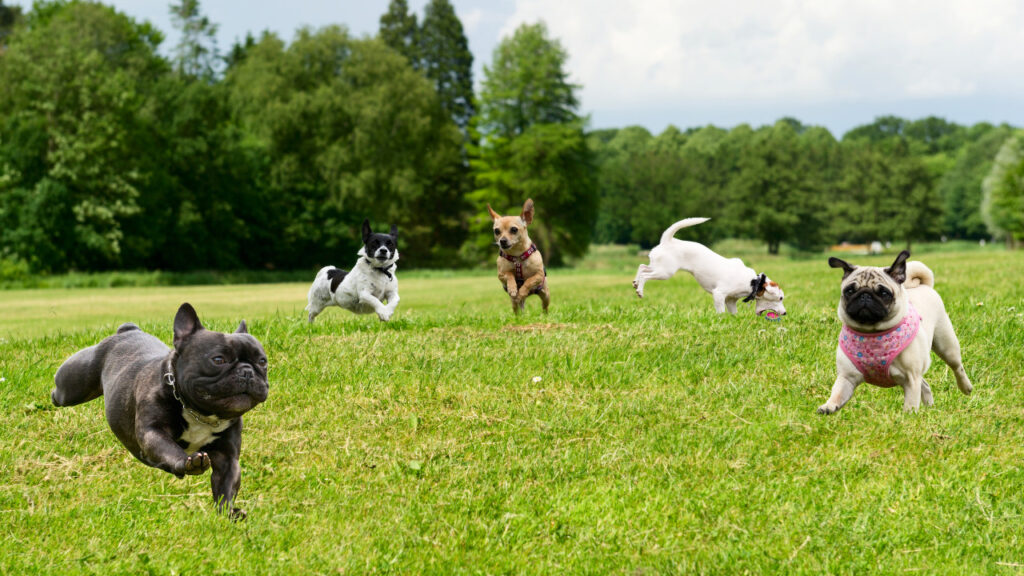10 ways to make your dog happier

Looking after and loving a dog is one of the best things you can do. Every dog carer can attest to the fact that having a dog improves their life – they make us happier, healthier, fitter and less lonely. So how can we make sure that we’re also helping them live their best life?
The essentials to good pet care include excellent diet, fresh water daily, shelter, comfortable thick bedding, grooming to keep the coat healthy and free of matts, exercise, play and preventative health care.
Here are our tips to help your dog be the happiest they can be:
- Walking, daily
Daily exercise is essential for dogs. The exercise type and intensity must best suit the needs of your pet. A young energetic dog may need one hour once or twice daily of exercise, whilst an elder pet may just benefit from going around the block, or up a few houses twice daily. Access to a large yard with the same old smells is no substitute to all the new sights and smells during a walk on the streets. - Limit treats
Reward those behaviours you enjoy with healthy treats (ideas here), and make sure they don’t exceed 10% of their diet for the day. A diet too high in treats will also negatively affect the nutritional balance of the overall diet.
Overindulging dogs with treats that are rich and high in fat (such as barbeque meats, ham etc) can lead to gut pain, vomiting, diarrhoea and even cause pancreatitis (which can be deadly). Long term an excess of treats will also lead to weight gain. - Play
Toys and play are a great tool to reduce boredom and it’s associated destructive behaviours such as barking, digging holes and chewing at your furniture. It’s great to keep toys on rotation so each week something old feels new again.You can introduce activities with the toys – such as hiding a chew toy filled with treats and teaching them to find it. You can start making the toy very easy to find, and gradually increase the work to locate it. - Feed in slow release devices
It’s great to increase the time taken to acquire and eat food. In the wild dogs forage and hunt for their food where we typically just provide it in a bowl, taking away the fun and time spent finding the food. By giving them something to do whilst getting the reward (their meal!) you have alleviated their boredom and helped them burn some energy so they are happier to rest later. - Socialising
Always plan play and socialisation according to your dog’s personality. It’s important that the right type of socialisation is done for your individual pet. Some will thrive at busy dog parks or dog friendly beaches, some will prefer the company of just a few. If you have a dog who is not good with other dogs it’s important to avoid any possible triggering situations – although keeping them isolated at home may compound their issues further – please consult a veterinarian so that a management plan can be put into play. - Training
Keep the training going beyond puppy school. A daily ritual of 10 minutes of training with positive reinforcement or teaching a new trick or game is a great way to spend time together and strengthen your bond. - Routine
Dogs thrive on routine and knowing what to expect and when to expect it. Things can’t be the same every day but following a basic routine of exercise and feeding times will be highly beneficial. - Calm life
When we are stressed, not surprisingly, so are our pets. By managing our own stress, and creating a calm, consistent environment for our dogs to live in, we are in turn allowing them to be calm and happy. - Sound sleep
Sleep is needed for growth and brain development – it’s crucial that puppies and dogs are not disturbed when they are sleeping.Good quality sleep requires a secure, quiet, draft-free place that feels safe. This is a place they can retreat to whenever they are wanting to be alone as well. - Keep tabs on your dogs behaviours
Monitor your pets behaviours daily – if you notice a change to their weight, appetite, drinking, toileting, exercise tolerance or sleeping, something may be up. These changes may be attributed to medical problems. First thing to do if you are seeing any of these changes with your pet is to consult a vet.